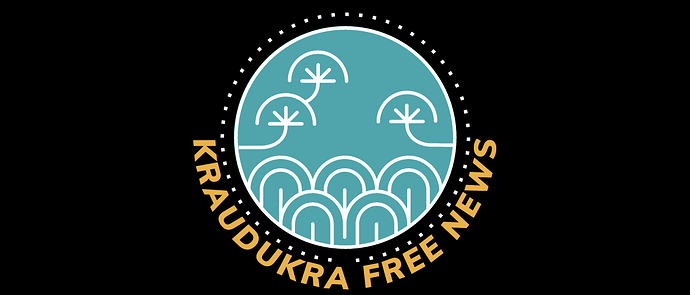EXLCUSIVE: Rumors Swirl Over Potential Union Between Purity Vanguard and Takaran People’s Army, Sparking Fears of Complete Militant Takeover in Mitallduk
Yayyára, Krauanagaz— Speculation is mounting across Southern Cordilia about a possible alliance between two of the region’s most formidable militant groups—the Purity Vanguard and the Takaran People’s Army (TPA). If confirmed, such a union could potentially place nearly 80% of Mitallduk, a strategically critical region bordering Krauanagaz, under militant control, further destabilizing an already volatile area.
The rumors of this alliance began circulating in recent weeks following a series of clandestine meetings reportedly held between high-ranking commanders of the Purity Vanguard and TPA. Both groups have emerged as the most influential factions operating in Mitallduk, controlling large swathes of territory, key supply routes, and several urban centers. While they have often operated independently with distinct political and ideological goals, recent pressures from external forces, including increased military actions by Krauanagaz, Emerald, and Zuhlgani forces, may have pushed them towards considering a strategic merger.
If the Purity Vanguard and TPA were to join forces, the implications would be profound. The Purity Vanguard, known for its hardline stance and aggressive tactics, has substantial control over the eastern and southeastern parts of Mitallduk, while the TPA, which has roots in leftist insurgency and guerilla warfare, dominates much of the central and western territories. A merger would not only consolidate their hold on Mitallduk but could also provide a unified command structure, allowing them to coordinate operations more effectively against government and foreign military forces.
“This would be a game-changer,” says Dr. Luria Avedan, a security analyst specializing in South Cordilian geopolitics. “For years, the disunity among various grassroots[sic] militant factions in Mitallduk has been one of the few factors preventing a full-scale takeover. If they unite, they could effectively govern the region, exerting de facto control over nearly 80% of Mitallduk. This would fundamentally alter the dynamics on the ground.”
Evidence suggesting an alliance has been seen in recent weeks. Joint militant operations have been reported, where fighters from both groups have been sighted working together in what appear to be coordinated attacks on Krauanagazan military outposts and supply lines. In areas previously known for factional disputes between the Purity Vanguard and TPA, clashes have notably decreased, replaced instead by joint propaganda broadcasts urging locals to support “the unification of Mitallduk under a single, free banner.”
A Krauanagazan intelligence official, speaking on condition of anonymity, revealed that intercepted communications suggest both groups are currently negotiating terms of cooperation, including leadership structures, resource sharing, and operational command hierarchies. “We are closely monitoring the situation. If these rumors prove true, it would present a significant threat not only to regional stability but to Krauanagaz’s own borders,” the official noted.
The potential merger is causing alarm among Mitallduk’s remaining government officials, local powerbrokers, and international observers. If nearly 80% of Mitallduk falls under militant control, the region could become a base for launching larger insurgencies, cross-border attacks, or even a foothold for extremist elements that may not align with the broader goals of the Purity Vanguard or TPA.
Krauanagaz, which shares a porous border with Mitallduk, has already seen a spike in skirmishes and incursions in recent months. The government has bolstered defenses, but an alliance between these groups could stretch Krauanagazan military resources thin, especially with increasing tensions with Zuhlgani forces and the looming threat of a broader regional conflict.
For the nearly 18 million people still living in Mitallduk, such an alliance would likely result in even greater instability. Over 5 million civilians have already fled the areas controlled by the Purity Vanguard and TPA, fearing the militant groups’ harsh governance and the potential for violent crackdowns on dissent. If a merger is formalized, those still in the region could face even greater uncertainty, as the two groups could focus on consolidating their power and cracking down on any remaining opposition.
International reactions to these rumors have been loud and clear in voicing disapproval. Both Krauanagaz and Zuhlgan have issued statements condemning the possible merger and expressing concerns about a significant escalation in militant activity. Diplomatic channels are reportedly being used to coordinate a response among regional and global powers, who are worried about the potential for Mitallduk to become a hotbed of militant activity that could spill over into neighboring countries.
“The potential for a large-scale militant union in Mitallduk is concerning,” stated a Zuhlgani foreign affairs spokesperson. “It could embolden other radical groups across Cordilia and even beyond. It is imperative that we work together to counter such a threat.”
Meanwhile, there is also speculation that some foreign powers might use this development as an excuse to intensify their military footprint in the region. There are already murmurs in diplomatic circles about increased military aid, intelligence-sharing agreements, and potential direct interventions if the situation continues to deteriorate.
As rumors continue to swirl, what happens next in Mitallduk is anyone’s guess. For now, both the Purity Vanguard and the TPA remain publicly silent on the matter, neither confirming nor denying the reports. However, as events unfold, the world will be watching closely to see if these two powerful militant factions will indeed join forces—potentially reshaping the future of Mitallduk and the entire region.
